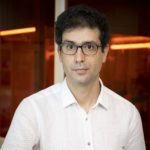Link to Pubmed [PMID] – 21983923
Nat. Methods 2011 Nov;8(11):949-55
To understand the regulatory role of niches in maintaining stem-cell fate, multifactorial in vitro models are required. These systems should enable analysis of biochemical and biophysical niche effectors in a combinatorial fashion and in the context of a physiologically relevant cell-culture substrate. We report a microengineered platform comprised of soft hydrogel microwell arrays with modular stiffness (shear moduli of 1-50 kPa) in which individual microwells can be functionalized with combinations of proteins spotted by robotic technology. To validate the platform, we tested the effect of cell-cell interactions on adipogenic differentiation of adherent human mesenchymal stem cells (MSCs) and the effect of substrate stiffness on osteogenic MSC differentiation. We also identified artificial niches supporting extensive self-renewal of nonadherent mouse neural stem cells (NSCs). Using this method, it is possible to probe the effect of key microenvironmental perturbations on the fate of any stem cell type in single cells and in high throughput.
